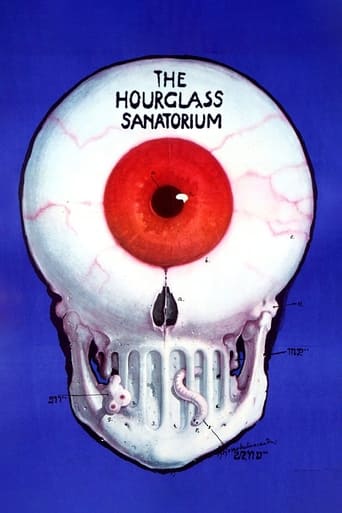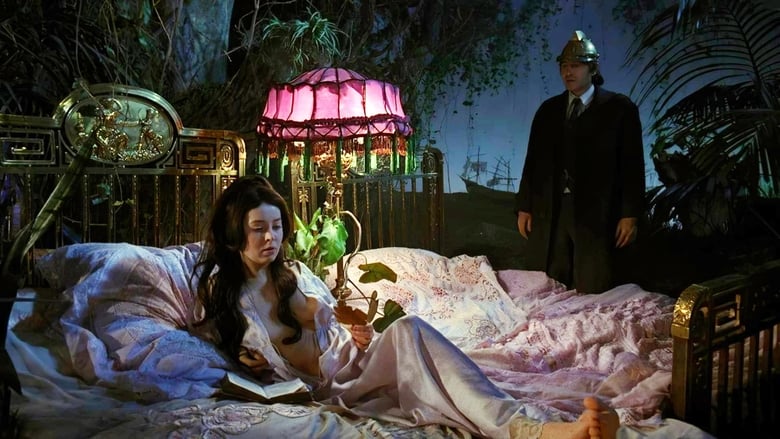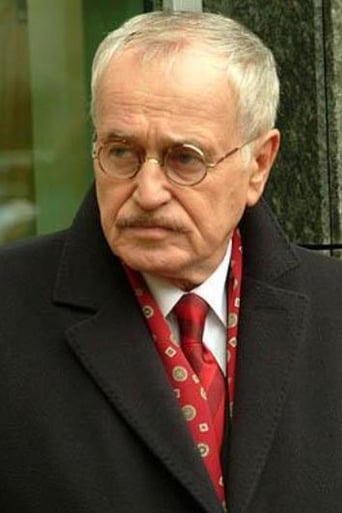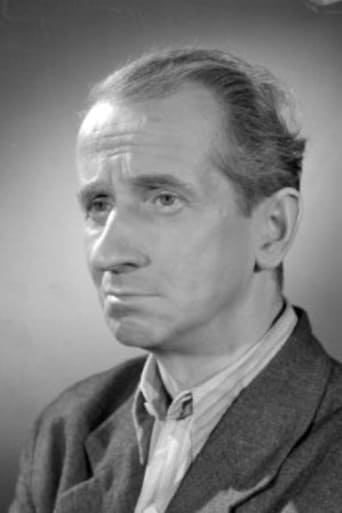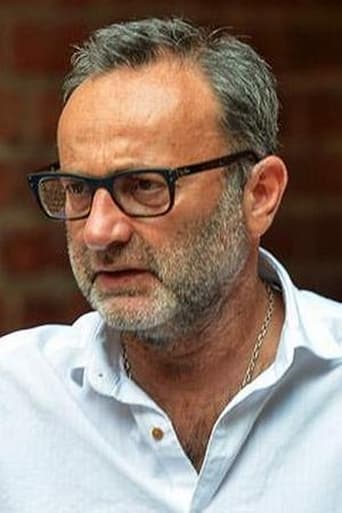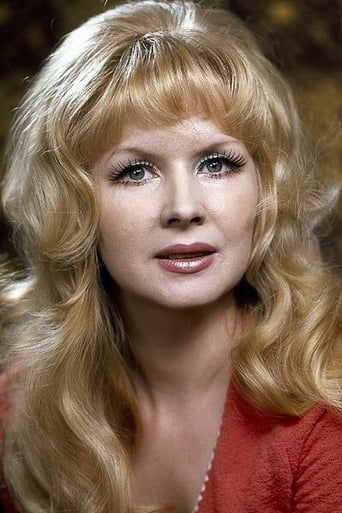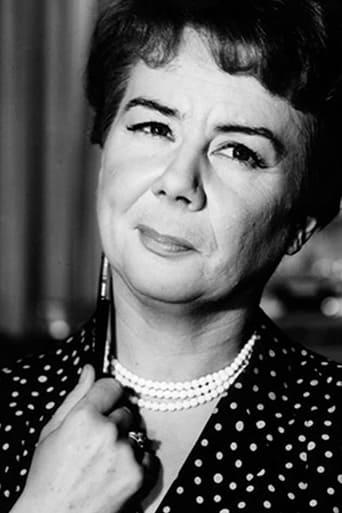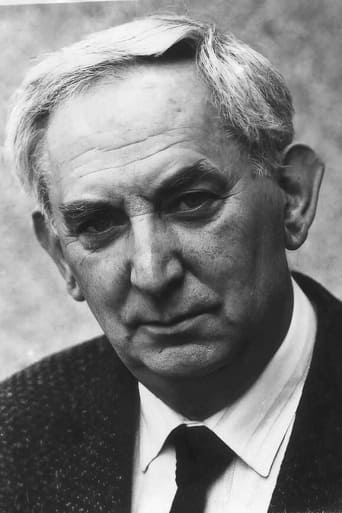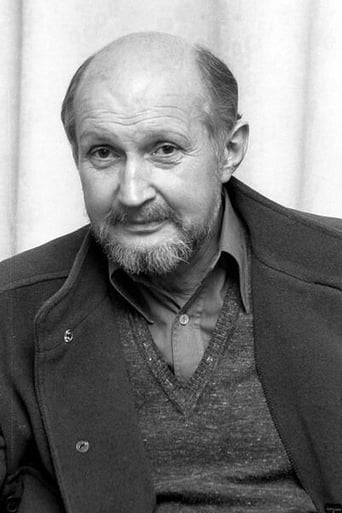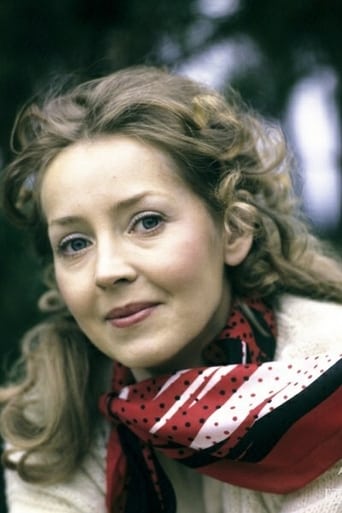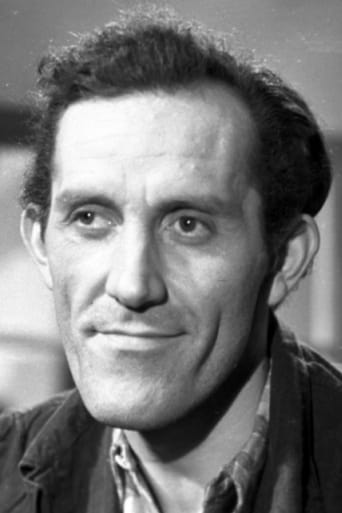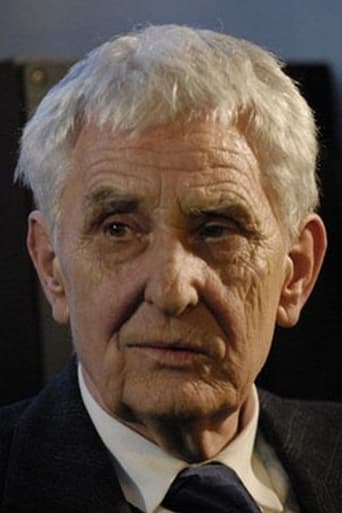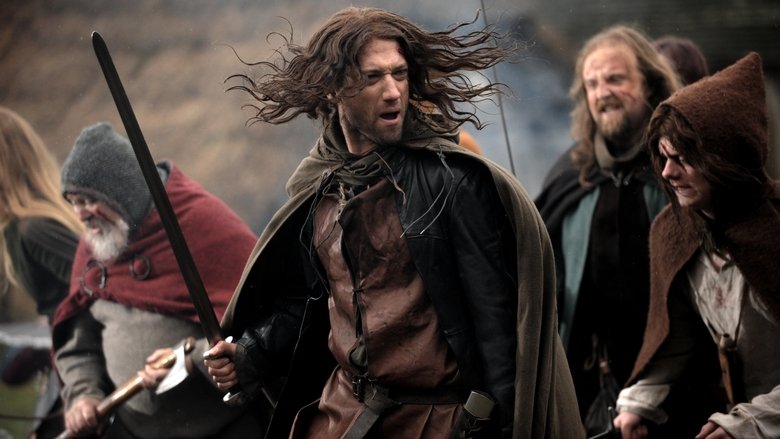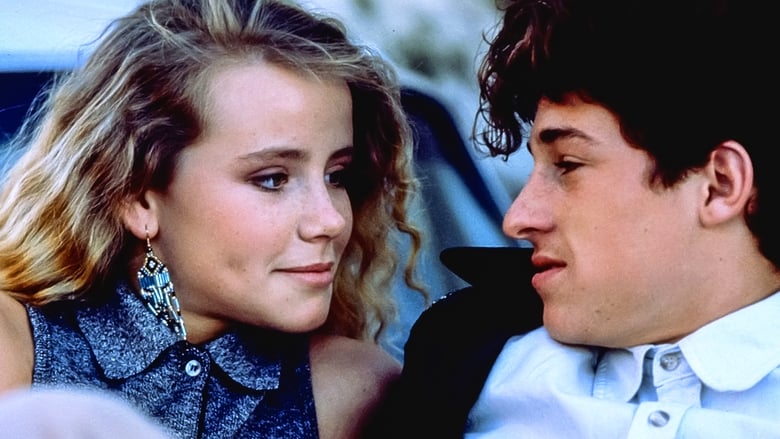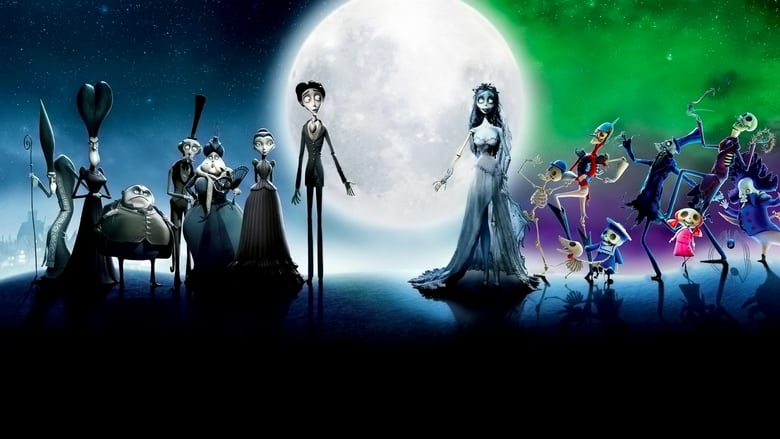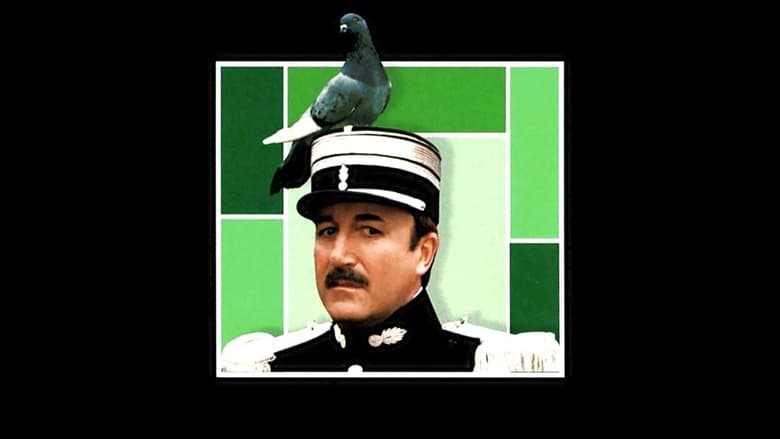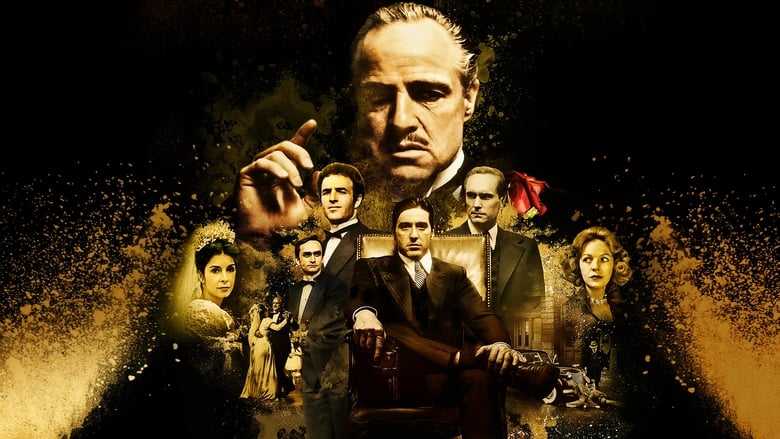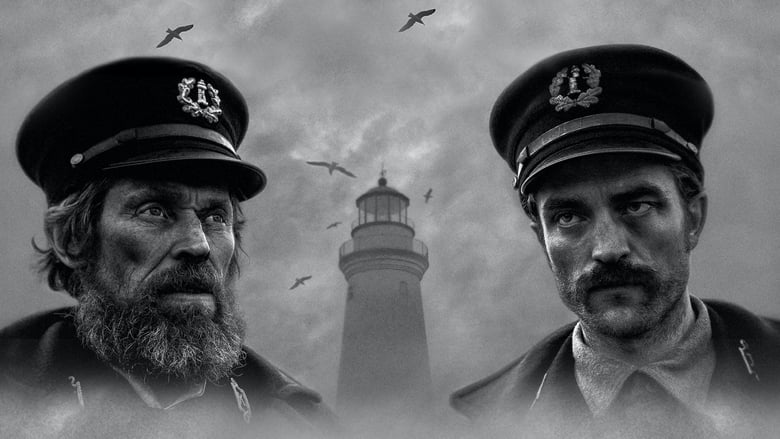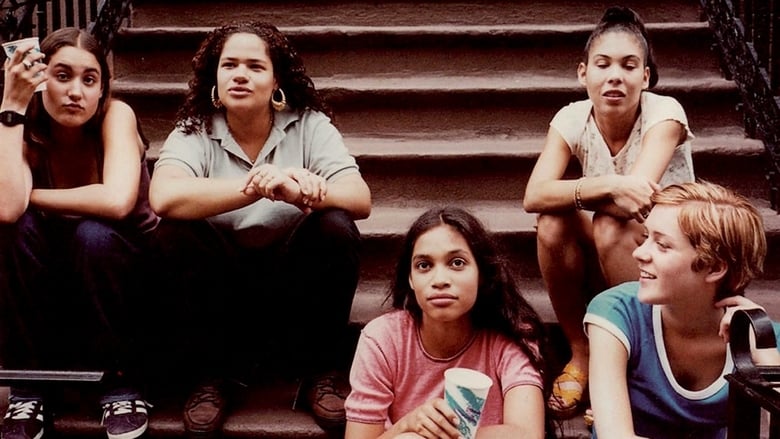Josef visits a dilapidated Sanatorium to see his father. Josef undertakes a strange journey through the many rooms of the sanatorium, each which conjures worlds composed of his memories, dreams and nightmares.


Reviews
Very fun to watch, some really thoughtful and cinematically awesome moments. I'm just a white little American kid so all the references to Polish Judaism which dominate this film aren't much I can understand or relate to. The cinematic transition where he's lost in thought and it zooms out through the flowers at around 19 minutes is one my favorite ever. I remember the first time I saw that how it had me sucked into that feeling of being lost in thought then snapping back to reality so well.Worth watching even if you can't relate to the greater themes like me. Looking forward to seeing more from this director regardless of whether or not I can relate to it.
Sandwiched somewhere between David Lynch and Luis Bunuel is Wojciech Has, a little known Polish director responsible for "The Saragossa Manuscript" and "The Hourglass Sanatorium", two rather grand exercises in surrealism."The Hourglass Sanatorium", which might as well be called "Alice in Shoahland", concerns the journey of Jozef, a man who arrives at a derelict sanatorium after an exhausting train journey. Two minutes into the film, and already we're assaulted by a barrage of symbolism. The train represents a shuttle for dead or dying souls. It's a gateway to "the sanatorium", a sort of limbo where life and death commingle before one is shunted permanently off into the afterlife. On another level, the train represents the carriages used to transport Polish Jews to concentration camps during the Holocaust.So this is a film which not only deals with a dead Jozef stumbling through the memories, events and fantasies of his life, but a film about the culture of a pre-World War 2 Europe. Or rather, the film mirrors Jozef's mental and bodily disintegration to the way Poland crumbled during and after the Holocaust. As the film progresses Jozef will lose his eyesight whilst the world around him likewise falls apart, objects in the sanatorium becoming increasingly claustrophobic, closed and nailed shut, as if ready to be taken away.But the film offers not only a historical, cultural and personal perspective on death and the passage of time, but a kind of subconscious look at the way Jozef's relationship with his father throughout his life forced him to confront, not only his own mortality, but the perishability of all things.As the film progresses, we're thus treated to an Alice in Wonderland styled journey in which Jozef bumbles from one strange set piece to the next. Only after multiple viewings do these sequences coalesce into meaning, the film serving up episodes in which Jozef re-experiences events from his life in an increasingly psychedelic fashion. Encounters with naked women, dead Jews, Nazi camps, erotic fantasies, Yiddish chants, memories of his mother, his home, his father, his father's textile shop (a meeting place for Jewish men), his marriage, being disciplined as a child, the encroachment of war and an extended sequence filled with mannequins, clockwork dolls and motionless historical figures, are all thoroughly confusing until your brain starts sorting through all the symbolic information.On top of this is a subplot which seems to suggest that Jozef's father was killed by the Nazis for assisting or hiding Jews in some way, but the film's intricately linked web of symbols are so esoteric that it's hard to get a read of things. With audiences so unfamiliar to this kind of filmic language, such a film is likely to only appeal to a very narrow range of people.Adapted from a book by Bruno Shulz, a victim of the Nazis, the film is, at its best, an unconscious (or repressed?) look at the traumas of the Holocaust as well as a journey through the memories of a man who tumbles through time on his deathbed. At its worst, however, this is a film almost opaque in its symbolism. So if you aren't phased by Jodorowsky's "The Holy Mountain", Tarkovsky's "Nostalghia", Bergman's "Hour of the Wolf", Greenaway's "Prospero's Book" and Lynch's "Inland Empire", then give Wojciech Has a taste. If not, stick to drugs.8/10 – Requires multiple viewings. One has to start with Tarkovsky, Greenaway and Lynch before tackling this beast. See "Night and Fog", "Hotel Terminus" and Melville's "Army of Shadows".
Did I watch this film or did I dream it. This may be your initial response after watching "the Hourglass Sanatorium". Those who are fans of Fellini, Jodorowsky, Peter Greenaway and Andrej Zulawski will feel right at home. Originally the film was based on a novel, and the story deals with a man who takes a train to see his sick father at a sanatorium. The sanatorium feels Gothic and abandoned. Time seems to be non existent there. Since time has slowed down the father goes on living and the son gets lost in the many rooms of the sanatorium. His journey is as comical as it is frightening. Memories and history become reality and the main character walks throughout many strange scenarios from the past and from his childhood. A simple action like crawling under a bed, can transfer him to a different time and place. Among the strange images in the film which are the most breathtaking are, the Jewish Rabbis breaking out into a song number, people who are part human and part wax figures, dead zombie like soldiers, people in strange bird masks, elephants, and odd philosophical discussions. This is one movie that is so complex and confusing that if you miss 1 minute (or even if you don't miss anything) you'll feel lost. After the film was over, I was left scratching my head; it was like I had just woken up from a bizarre dream. This is one of the most breathtakingly surreal film experiences I have ever had. Film is a visual art, so words can't come close to describing "the Hourglass Sanitorium". You have to see it for yourself!
Based on a story collection of the same name by Bruno Schulz, who was shot by the Gestapo in 1942, this movie is one of the rare cases of a congenial adaptation of modern fantastic literature. It's a demanding movie and it is impossible to extract something like a plot line. There are various changes in between time and space, but once you get involved with the narrative, they seem perfectly logical. Also, there are many highly impressive sequences and settings - i have read somewhere (i can't give no reference right now, sorry) that it was the most expensive movie ever made in Poland, and maybe it still is. It certainly is one of the best. And, by the way, there is one scene with a room stuffed full of mannequins that looks like an inspiration to a similar sequence in Ridley Scott's "Blade Runner", which is a great movie of its kind, but was made some years later and did much better at the box office.
